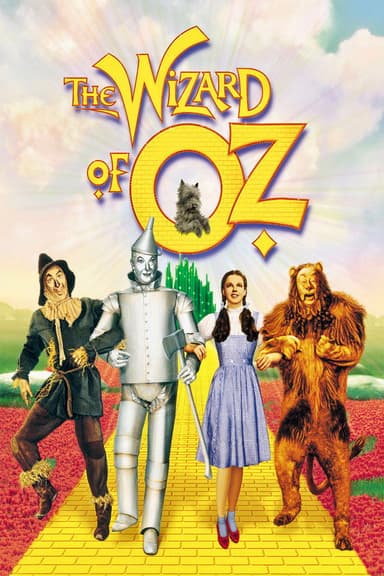
The Wiz
1978 • Adventure, Fantasy, Music • G
Dorothy Gale, a shy kindergarten teacher, is swept away to the magic land of Oz where she embarks on a quest to return home.
Runtime: 2h 14m
Why you should read the novel
L. Frank Baum’s 'The Wonderful Wizard of Oz' offers a timeless adventure that goes beyond the spectacle of any movie. The novel invites readers to immerse themselves in a magical world that comes alive through Baum’s enchanting prose and rich imagination. With every turn of the page, new mysterious lands and unforgettable characters await, offering discoveries only possible in the book’s detailed narrative.
Reading the novel offers a journey far deeper than its cinematic or stage counterparts, allowing you to fully experience Dorothy’s curiosity, courage, and compassion. The book presents subtle layers of meaning, hidden metaphors, and original character arcs that may be overshadowed or changed in adaptations. Fans of fantasy, fairy tales, and adventure will discover the lasting legacy that has inspired generations.
Choosing to read Baum’s original work provides a greater appreciation for Oz’s magical landscape and its deeper messages about friendship, bravery, and self-discovery. It is a literary treasure, brimming with charm and imagination, waiting to be explored at your own pace—unfiltered and unabridged.
Adaptation differences
One major difference between 'The Wiz' (1978) and the original novel is the setting. While Baum’s story unfolds in a classic fairy-tale fantasy land and small-town Kansas, 'The Wiz' reimagines Oz as a stylized, urban New York City and places Dorothy in Harlem. This not only modernizes the adventure but also gives the film a distinctive cultural identity, departing from the book’s rural Midwest sensibilities and the whimsical nature of Baum’s descriptions.
The film’s musical style and tone differ greatly from the gentle, sometimes suspenseful atmosphere of the novel. 'The Wiz' uses soul, R&B, and gospel-inspired numbers to convey emotions and propel the story, while the book relies on narrative, dialogue, and classic story structure. Many plot points are adapted for musical impact rather than faithfully following the source material, with new scenes or characters created for dramatic or comedic effect.
Dorothy’s character is noticeably older in the film; in Baum’s novel, she is a young girl, but in 'The Wiz', she is depicted as an adult kindergarten teacher. This age shift influences her journey of self-discovery, her relationships with other characters, and how the story’s themes are experienced and interpreted. The change also enables different kinds of emotional exploration not present in the original book.
Other key elements, such as the identity and motives of the Wicked Witch, the portrayal of Oz itself, and the method by which Dorothy returns home, are restructured or condensed. Where Baum carefully details imaginative trials and friends she meets on her journey, 'The Wiz' streamlines or alters these adventures to fit a movie’s runtime and musical priorities, resulting in a unique but distinctly different adaptation from the source novel.
The Wiz inspired from
The Wonderful Wizard of Oz
by L. Frank Baum










